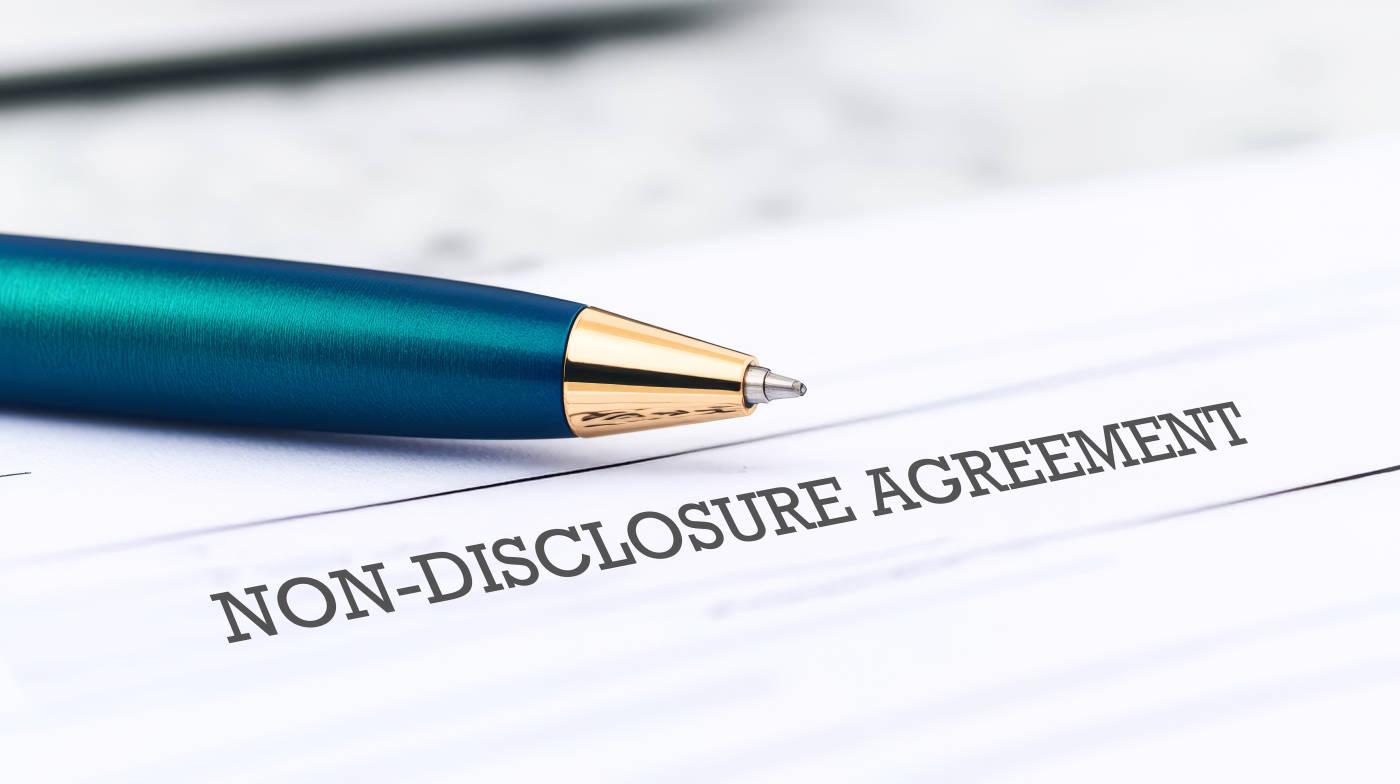
Trade secrets—ranging from formulas, recipes, and processes to client lists, marketing strategies, and software code—can constitute a company’s most valuable asset. Protecting these secrets is crucial to maintaining a competitive edge and sustaining long-term success.
One of the most effective legal tools businesses use to safeguard trade secrets is the non-disclosure agreement (NDA). In Florida, as in other states, NDAs serve as the first line of defense against the unauthorized use or disclosure of confidential information.
At Keough Law PLLC in Orlando, Florida, we offer experience and knowledge of business law to make sure you’re thoroughly protected. Here, we’ll explore the role of NDAs in protecting trade secrets and the critical role that an experienced Florida attorney like Shaun Keough plays in crafting, enforcing, and grasping the legal process surrounding these agreements.
The Basics of Trade Secrets
Before discussing NDAs, it's essential to understand what constitutes a trade secret. According to the Florida Uniform Trade Secrets Act (FUTSA)—which mirrors the federal Defend Trade Secrets Act (DTSA)—a trade secret is defined as:
Information, including a formula, pattern, compilation, program, device, method, technique, or process that:
Derives independent economic value from not being generally known; and
Is subject to reasonable efforts to maintain its secrecy.
This broad definition encompasses both technical data and business practices that provide a competitive edge. Importantly, a trade secret doesn’t require formal registration like a patent or trademark but is protected as long as it remains confidential.
What is a Non-Disclosure Agreement?
A non-disclosure agreement (NDA) is a legally binding contract in which one or more parties agree not to disclose certain confidential information. NDAs are typically used in business relationships where sensitive information must be shared—such as during mergers, product development collaborations, or employment arrangements.
Types of NDAs:
Unilateral NDA – One party discloses information to another, who agrees to keep it confidential (common in employment).
Mutual NDA – Both parties disclose and agree to keep each other’s information confidential (common in joint ventures or partnerships).
Multilateral NDA – Involves more than two parties and is used in complicated business deals or consortia.
How NDAs Protect Trade Secrets
NDAs are a crucial component of a trade secret protection strategy for several reasons:
1. Legal Documentation of Secrecy
To be protected under FUTSA or DTSA, information must be the subject of efforts to maintain secrecy. An NDA demonstrates these efforts, serving as clear evidence that a business considers the information confidential and took formal steps to protect it.
2. Deterrence
NDAs have a psychological and legal deterrent effect. When parties are required to sign an NDA, they’re on notice that disclosing or using the information improperly could have legal consequences, including lawsuits, damages, and injunctions.
3. Clear Scope of Confidentiality
NDAs can clearly outline:
What information is considered confidential.
How that information may be used.
The time period of the agreement.
The consequences of breach.
This specificity reduces ambiguity and helps avoid disputes later.
4. Basis for Legal Action
If a party breaches an NDA, the agreement gives the injured party the legal basis to sue for damages or seek injunctive relief. Courts can order the offending party to stop using the trade secret and compensate the harmed party for economic losses.
Florida’s Trade Secret Laws and NDAs
In Florida, the Florida Uniform Trade Secrets Act (FUTSA) governs the protection of trade secrets. NDAs play a pivotal role in fulfilling FUTSA’s requirement that reasonable efforts must be taken to maintain secrecy.
Under FUTSA, a party that misappropriates trade secrets—through theft, bribery, or breach of duty—is liable for damages, and courts can impose injunctions. Having a well-crafted NDA strengthens a plaintiff’s case under FUTSA by establishing a duty to maintain confidentiality.
Florida courts generally uphold NDAs if they are:
Reasonable in scope and duration.
Not overly broad.
Not contrary to public policy.
This is where a Florida attorney’s expertise becomes critical.
How a Florida Lawyer Can Help Protect Trade Secrets Using NDAs
Engaging an experienced business attorney in Florida is essential to make sure NDAs are legally sound, enforceable, and strategically effective. Here’s how a lawyer contributes:
1. Drafting Customized, Enforceable NDAs
No two businesses are alike. A Florida lawyer can craft NDAs tailored to a company’s specific needs, industry, and risks. Customization is key to enforceability. For example:
In the tech industry, source code and algorithms may need special protections.
In healthcare, NDAs must comply with HIPAA regulations.
A Florida attorney confirms the NDA is neither too vague (risking unenforceability) nor too broad (which can be challenged in court).
2. Compliance with State and Federal Law
NDAs must comply with both Florida laws and relevant federal statutes like the DTSA. Florida has particular rules about contracts, such as:
Prohibitions on overbroad restrictive covenants.
Requirements for consideration (i.e., something of value in exchange for the NDA).
Public policy limitations (e.g., NDAs that hide illegal conduct may be void).
An attorney assures the NDA aligns with these nuances.
3. Employee and Contractor Agreements
A common scenario involves employees or contractors who have access to sensitive data. A Florida lawyer can draft NDAs as part of broader employment or contractor agreements that:
Clearly define what constitutes confidential information.
Include non-compete or non-solicitation clauses where permitted.
Survive termination of employment or contracts.
Florida law places limits on restrictive covenants, so legal guidance is essential to avoid drafting unenforceable terms.
4. Due Diligence and Business Transactions
NDAs are vital during mergers, acquisitions, or investment deals, where businesses must share sensitive data during due diligence.
Mutual NDAs are in place before data sharing.
Confidentiality obligations continue even if the deal falls through.
NDAs don’t unintentionally waive trade secret protections.
A lawyer will make sure all of these protections are present.
5. Litigation and Enforcement
If a breach occurs, a Florida lawyer can:
Issue cease-and-desist letters.
File lawsuits in state or federal court.
Seek injunctions to stop further use or disclosure.
Pursue monetary damages for misappropriation.
The lawyer may also invoke the DTSA’s ex parte seizure provision, allowing federal courts to seize stolen trade secrets before they’re disclosed further.
6. Training and Internal Policies
An often-overlooked but essential function is making sure that employees understand the NDA’s terms. A Florida attorney can help implement:
Internal training programs on confidentiality.
Access controls and documentation.
Policies for onboarding and offboarding employees.
These steps bolster a company’s “reasonable efforts” to maintain secrecy, as required under FUTSA and DTSA.
Best Practices for Businesses in Florida
To effectively protect trade secrets with NDAs, Florida businesses should follow a few best practices.
Identify and classify trade secrets – Know what information qualifies and label it appropriately.
Use NDAs consistently – Require all employees, contractors, and partners with access to sensitive data to sign NDAs.
Limit access – Share trade secrets only with those who need to know.
Regularly review and update NDAs – Laws evolve, and so do business operations.
Legal review is vital to confirm enforceability and compliance with evolving legal standards.
Real-World Example: Florida Case Law
In the case Premier Lab Supply, Inc. v. Chemplex Industries, Inc., a Florida appellate court addressed the misappropriation of a trade secret involving proprietary technology and customer information. The plaintiff had entered into NDAs with employees and business partners. When the defendant, a former partner, allegedly used this information to compete, the court allowed the case to proceed, highlighting the role of NDAs in establishing the plaintiff’s reasonable efforts to protect its secrets.
This case illustrates how a well-drafted NDA, combined with strategic legal action, can provide a strong legal foundation in trade secret litigation.
Contact Us Today
Businesses must take proactive steps to protect their confidential information. Non-Disclosure Agreements serve as an essential tool in this effort, creating legal obligations and documentation that trade secrets were meant to be kept confidential. A Florida attorney plays a pivotal role in safeguarding a business’s most valuable intellectual assets. We serve clients in Orange County, Osceola County, Hillsboro County, Pinellas County, and Orlando, Florida. Reach out today.



